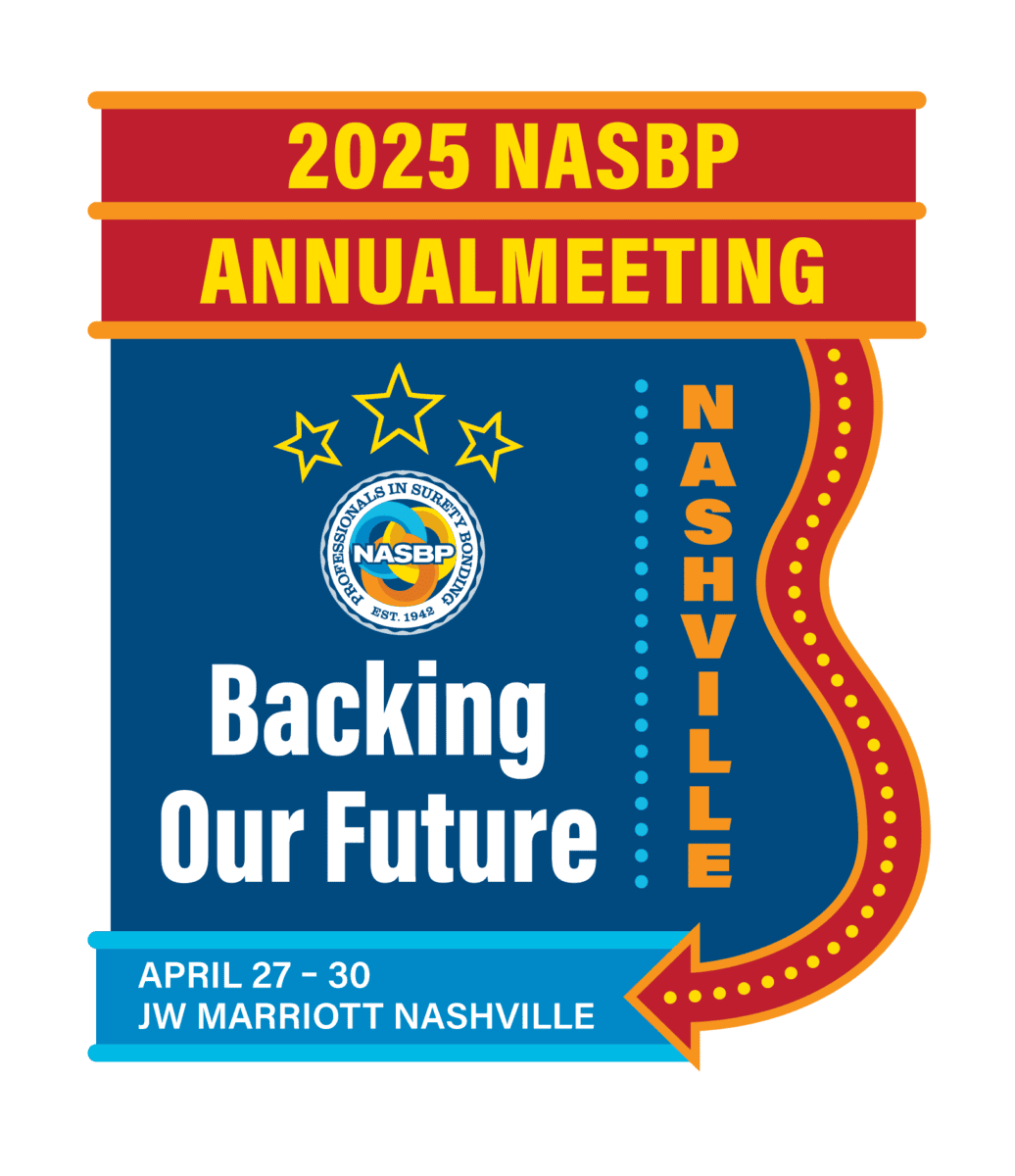
The Power of a Letter: Presenting our Viewpoint Makes a Difference!
If you attended one of the NASBP Regional Meetings this year, you may recall that I spoke of “issue advocacy” that NASBP undertakes at the request of and on behalf of its members. I am sure that it comes as no surprise to you that obligees continue to challenge our industry with difficult policies and adverse contract and bond form language and that NASBP continues to receive calls and emails requesting comment letters and other forms of assistance to educate obligees on why certain provisions and policies are problematic and, ultimately, not in their own interests.
You may be surprised, however, at the breadth of subjects that NASBP has taken action on or on which it has rendered advice and assistance in 2013. Here is a sample of those subjects:
- The absence of bond requirements on FEMA-funded construction contracts.
- Bonds not required in 100% percent of the contract amount as mandated by statute.
- Requirements for countersignatures by a licensed resident agent.
- Disparity between statutory definitions and scope of contract bonds and contractual requirements in standard contract specifications of state authority.
- Provisions calling for excessive assessments of liquidated damages.
- A second letter to address provisions calling for excessive assessments of liquidated damages.
- The absence of bond requirements in procurement policies on use of public-private partnerships.
- The allowance of an alternative insurance product in place of statutorily required performance and payment bonds.
- Disclosure requirements that all communications between the principal and its surety must be made known to the obligee.
- Imposition of unreasonable long-term warranties on contractors.
- A second letter to address the imposition of unreasonable long-term warranties on contractors.
- Casting a substantial proposal bond as a forfeiture instrument triggered by a subjective standard.
- Issuance by a major state university of revised bond forms with ambiguous and onerous terms.
In all of the above instances, local members and affiliates alerted NASBP to the problem; NASBP conferred with them to gain an understanding of the circumstances and background, and then issued comment letters directly to responsible officials. In some instances, NASBP undertook additional actions, such as phone calls or conferences, to build rapport and to permit the responsible officials to ask questions and receive direct responses and feedback.
I am pleased to report that many of these issue advocacy actions produced positive results for the industry, such as inclusion of bond requirements, reduction of excessive damage stipulations, or elimination of problematic language in its entirety. For example, NASBP member and staff actions were the catalyst for the following:
- Dawson County, Montana to add bond requirements to its FEMA-funded construction contracts;
- Northern Kentucky University to amend its RFP for construction management services to ensure a performance bond in the full amount of the contract amount and to eliminate a requirement for a resident agent countersignature on the bond;
- the Minnesota Department of Transportation to revise its definitions of bonds in its standard specifications so that they comport with statutory definitions;
- the U.S. Department of the Interior to lessen its excessive per day assessment of liquidated damages in one of its procurements; and
- Keene State College to remove its contract solicitation language permitting use of subcontractor default insurance in place of statutory performance and payment bonds at the prime level.
Exposing negative contracting and bonding practices to greater attention and engaging responsible procurement officials in informative dialogue has proven a winning formula for positive change. If you encounter an issue that is problematic for our industry, like the ones I have described, please do not hesitate to bring the matter to my attention at mmccallum@nasbp.org. For starters, NASBP will be more than happy to present a strong viewpoint in a written letter. We’ll then move up from there!
Get Important Surety Industry News & Info
Keep up with the latest industry news and NASBP programs, events, and activities by subscribing to NASBP Smartbrief.




